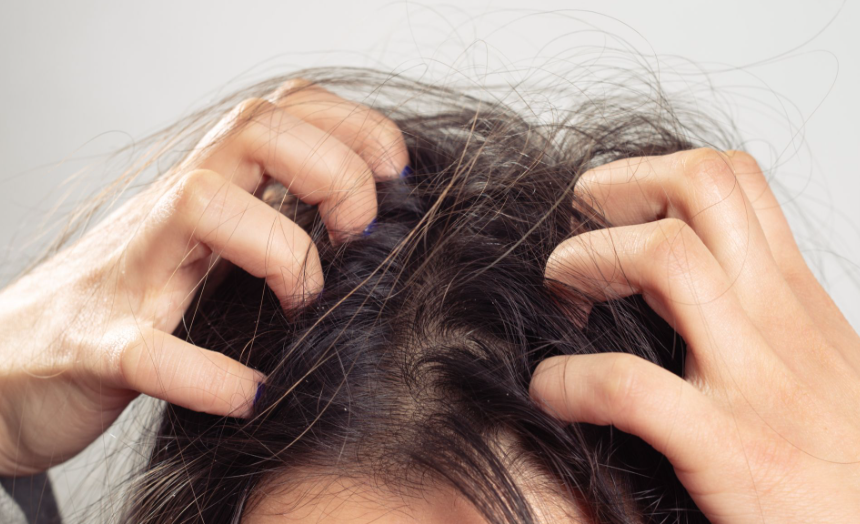
Dr Asim Shahmalak is one of the leading hair transplant surgeons in the world. He runs Crown Clinic in Manchester and has consulting rooms in Harley Street. His high profile patients include the Coronation Street actor Jack P Shepherd, the model Calum Best and the footballer Didi Hamann. As well as hair transplants, Dr Shahmalak performs more unusual procedures including eyebrow, eyelash, beard and sideburn transplants.
You can learn more about Dr Shahmalak’s accomplishments on his Wikipedia page:
Why is my head itching so badly?
Dr Asim Shahmalak said: “An itchy scalp, or scalp pruritus, is a common problem that can cause frustrating symptoms, such as frequent scratching and discomfort.
Sometimes, an itchy scalp is accompanied by visible signs, such as scabbed or flaking skin. Other times, your scalp can itch without any skin changes.
Although an itchy scalp doesn’t typically indicate anything severe, it can be a symptom of an underlying condition. These conditions can include:
Dandruff – is a common condition that causes the skin on the scalp to flake. It isn’t contagious or serious. But it can be embarrassing and difficult to treat. Mild dandruff can be treated with a gentle daily shampoo. If that doesn’t work, a medicated shampoo may help
Reaction to a hair care product – an itchy, dry, and flaky scalp could be telling you that you need to do a better job of rinsing the shampoo from your hair. Leaving some shampoo on your scalp can irritate it.
Hives – these are red, raised, and very itchy bumps that can form anywhere on the skin, including the scalp. Hives tend to come and go within a few hours. Sometimes, hives go away and come back. If hives come and go for longer than 6 weeks, they’re called chronic (long-lasting) hives.
Head lice – an itchy scalp is the most common symptom of head lice. If you suspect that head lice are causing the itch, ask someone to closely examine your scalp and hair for signs of these tiny bugs.
Allergic contact dermatitis – If you have an itchy scalp and a rash, you may have a condition called allergic contact dermatitis. This is common among people who dye their hair. Often the culprit is an ingredient in the dye called para-phenylenediamine (PPD), which is found in black hair dyes.
Scabies is caused by a tiny bug called the human itch mite. If these mites burrow into your scalp, your scalp can become quite itchy. Itch is the most common symptom of scabies, and it can be so intense that it keeps you awake at night.
Scalp psoriasis – about 50% of the people who have psoriasis experience a flare-up on the scalp at some point. On the scalp, you may have reddish patches, dandruff-like flaking, silvery-white scale, and a dry scalp. Scalp psoriasis is often itchy, with the itch ranging from mild to intense.
If the itchiness doesn’t go away in a few days and is accompanied by hair loss, pain, sores, or intense itching, see your doctor.
An itchy scalp due to a fungal infection, and some other conditions won’t go away without medical treatment.
In addition to a physical examination, your doctor may take a scraping of your scalp. In a lab, skin cells can be tested for the presence of fungi, bacteria, or lice. However, most doctors can diagnose the cause of your itchy scalp through a careful examination and review of your medical history.
Is banana good for itchy scalp
Yes there is some scientific evidence that bananas can help with scalp itchiness.
Fresh bananas are rich in nutrition, and they taste and smell great, too. Bananas can also give your hair a boost in texture, thickness, and shine.
Bananas contain silica, a mineral element that helps your body to synthesize collagen and may make your hair stronger and thicker. Bananas also have antimicrobial properties that can heal flaky and dry scalp, relieving dandruff symptoms.
Banana has become a popular ingredient in homemade hair masks meant to condition and soften your hair.
